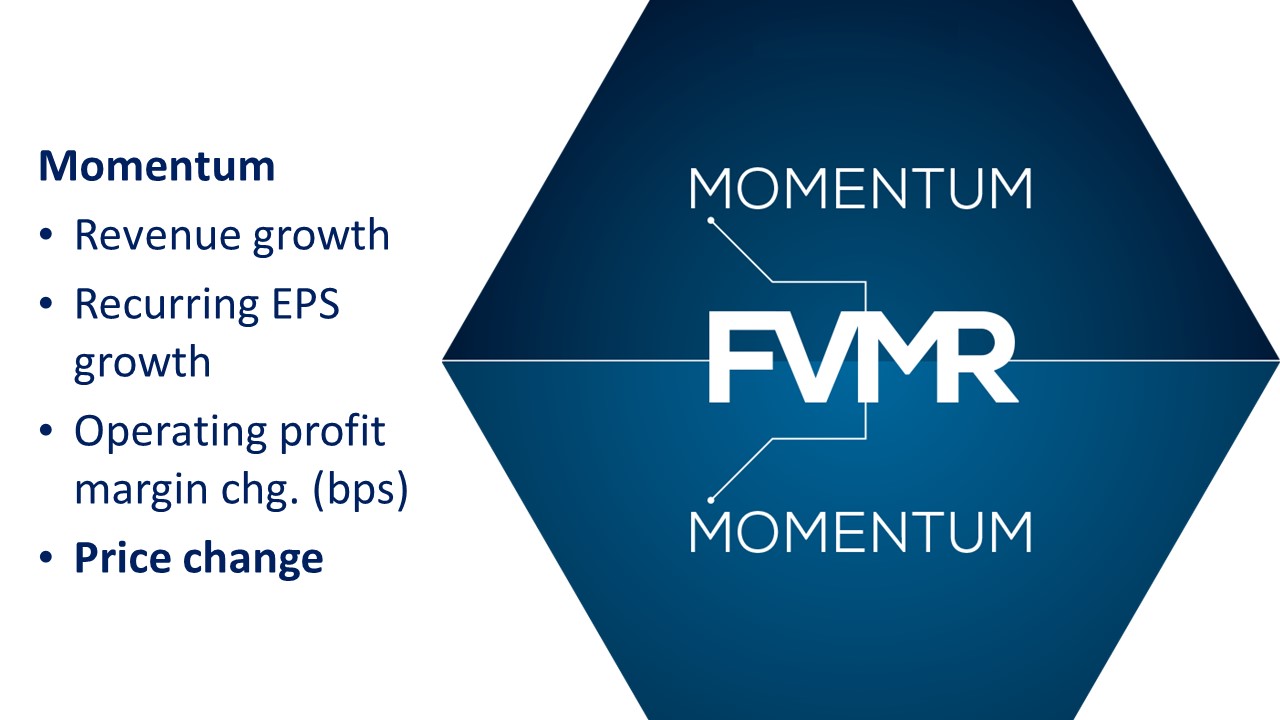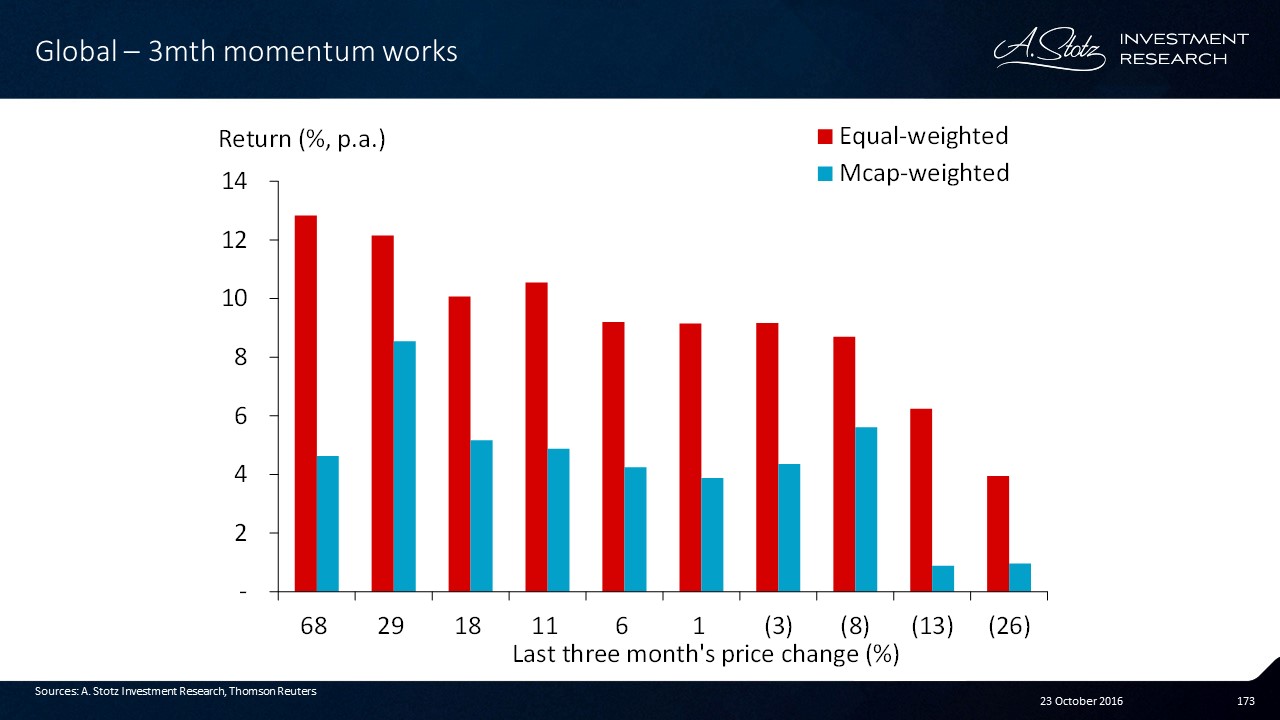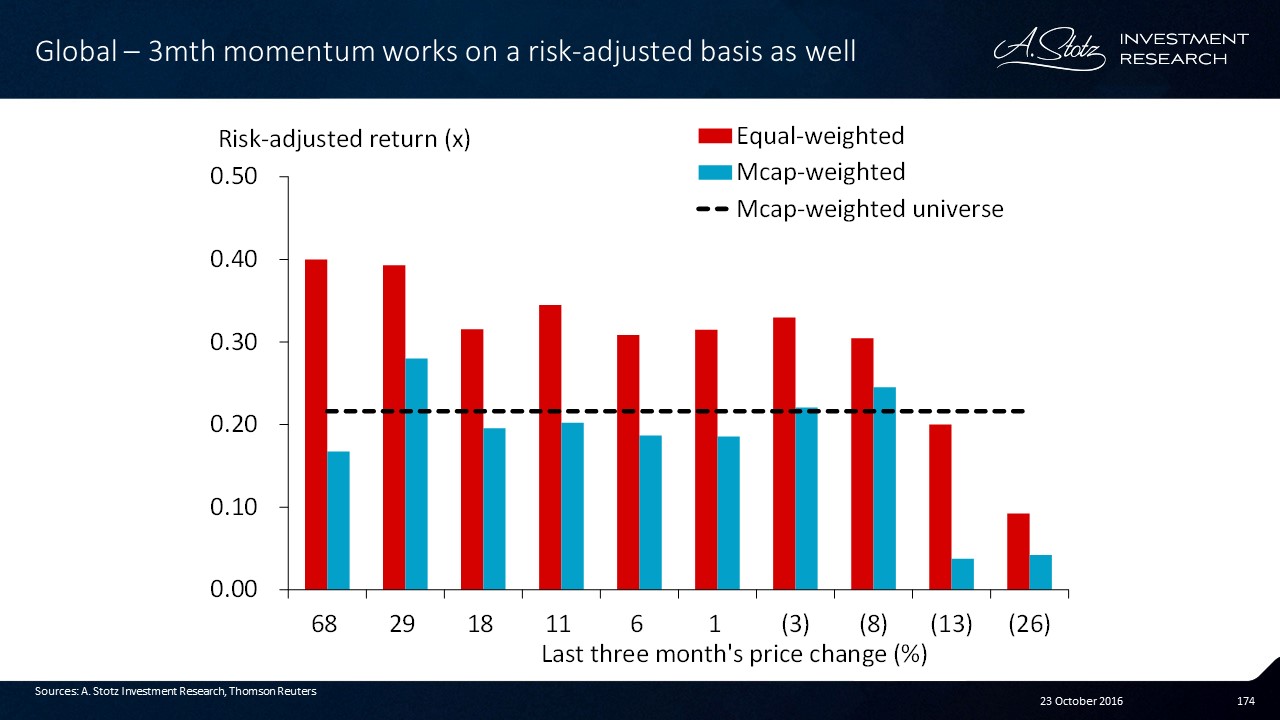Momentum Is a Good Start to Beat the Market
At A. Stotz Investment Research we look at investing through our FVMR framework: Fundamentals, Valuation, Momentum, and Risk. To come up with investment strategies for portfolios that should generate above-benchmark return we do a lot of backtesting. Below you can see a few factors that we consider when we look at Momentum. We consider both price momentum and momentum in fundamentals.
We previously tested a Fundamentals factor, return on assets, in Investing Is Not Just Buying Highly Profitable Companies and a Valuation factor, price-to-book, in Dirt Cheap Stocks Are Too Risky. In this post, we will put price momentum to test and we’ll look at the past three months price change.
Hypothesis
Investing in high three-month momentum stocks generates outperformance.
Universe
When backtesting, you should use original statements (and not re-stated) to avoid hindsight bias. When you backtest you also need to know and adjust for when a company closes its books. A company may close its books in December but that data is only available some months after on the announcement date. Focus on the announcement date when you backtest.
This was our process to come up with a global universe to test our hypothesis:
- Started with all companies listed anywhere in the world with a market capitalization of more than or equal to US$40m, which left us with 26,564 companies
- Applied a US$50m minimum market capitalization screen, which left us with 25,039 companies
- Filtered out illiquid stocks with a three-month average daily turnover of less than US$250,000 and was left with 16,270 stocks
- Excluded stocks of financial companies
- We removed 3,042 stocks (19%), leaving 13,228
Methodology
What is three-month (3mth) momentum? We look at the last three month’s price change, the higher price change, the higher momentum.
- On the last day of March of each year we ranked all stocks from highest momentum to lowest
- Divided that list up into deciles
- Measured the share price performance of each decile over the coming 12 months
- Re-ranked after 12 months and reallocated the money of each decile into the new stocks included in each decile
- Repeated for 10 years
Results
For equal-weighted, the 3mth momentum works nicely. Looking at market cap-weighted it does not really work that well. This indicates that momentum works better for small/mid caps than for large caps. It makes somewhat intuitive sense, as it’s easier for a small company to double in value than for a giant such as Apple, Procter & Gamble or Coca-Cola.
Indifferent of weighting scheme, the results show that we should certainly avoid stocks with poor momentum.
Adjusting for risk, the pattern stays the same for equal-weighted and for market cap-weighted the conclusion remains to avoid poor momentum stocks.
Conclusion
3mth momentum seems to work quite well in the hunt for outperformance. It is clear that you should avoid poor momentum stocks.
As the results for market cap-weighted don’t show a strong relationship, 3mth momentum isn’t a clear winner, but there are many other ways to measure and test momentum. Quantitative Momentum is a good book if you want to learn more about momentum investing.
What do you think about these findings on momentum? Are you considering momentum when investing in a stock? What momentum do you use?
Share your ideas and experience in a comment below.
DISCLAIMER: This content is for information purposes only. It is not intended to be investment advice. Readers should not consider statements made by the author(s) as formal recommendations and should consult their financial advisor before making any investment decisions. While the information provided is believed to be accurate, it may include errors or inaccuracies. The author(s) cannot be held liable for any actions taken as a result of reading this article.



